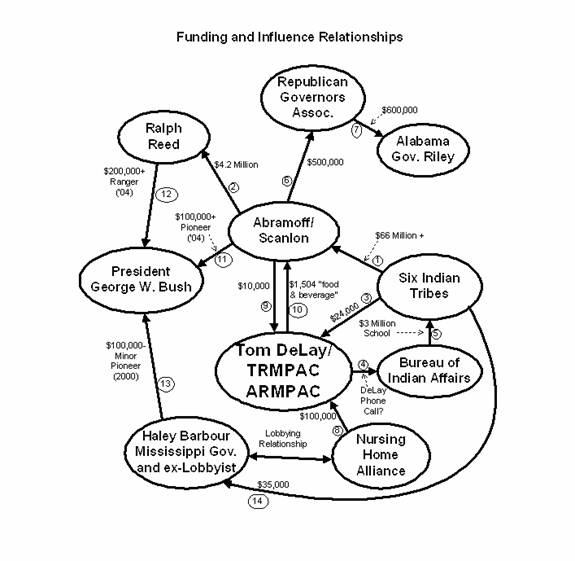 In the world of social network theory, much is made of the idea of "social capital" -- the notion that the network of social ties constitutes an important and productive form of wealth. This is a totally believable idea, but tends to mask the equally important truth that social networks can be used to do harm as well as good.
In the world of social network theory, much is made of the idea of "social capital" -- the notion that the network of social ties constitutes an important and productive form of wealth. This is a totally believable idea, but tends to mask the equally important truth that social networks can be used to do harm as well as good.This is hardly a new idea -- if you watch any long-running police show like The Wire (best thing on television BTW) you will see the cops making social network graphs of criminal organizations, usually on a funky pinboard, and the better-equipped cops in real life have software to do the same thing. And the concept of netwar has been around for a long time, although apparently the lesson is just now penetrating the heads of our leaders, who, when faced with an distributed asymmetrical enemy, decide to invade a nation because that's what they know how to do.
So, that brings me to the inspiration for this post: the sudden outburst of cronyism, or more accurately, of awareness of cronyism. This started building with various Jack Abramoff-related news, peaked with Michael Brown, and is now climaxing as Tom Delay gets indicted, Bill Frist gets investigated, and other exciting news.
Cronyism is the soft form of criminal conspiracy, but it's also not that far removed from the groovier, more celebrated forms of social networking. The much-vaunted networks of Silicon Valley are a crucial form of capital, but they are also crony networks with the attendant downsides of insider deals and quid pro quos for the connected.
Oh hell, I have nothing original to say about this topic except that I coined a lovely phrase to describe what's going on here -- social crapital -- the tool by which the kakistocracy retains its death-like grip on the nation's mechanisms of power. Does not appear in Google so you heard it here first.
1 comment:
Maybe they need to learn how to play "Go"
Post a Comment